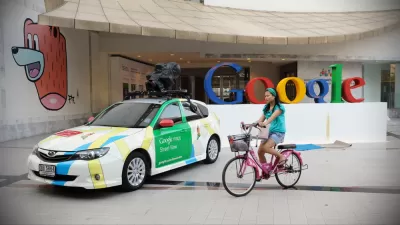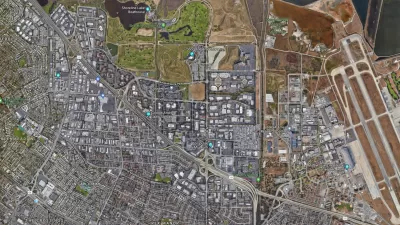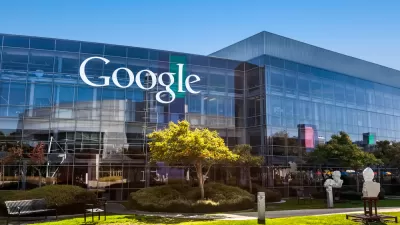Negotiations between the city of Mountain View and tech giant Google over the latter's plans to expand its headquarters recently took a strange turn.
"Google has backed down from a threat to deny badly needed housing in Mountain View if it isn’t given more office space for its futuristic new 'Charleston East' campus," reports Ethan Baron.
The ongoing evolution of the political situation surrounding Google's plans for its campus expansion shows the complicated nature of development in the Silicon Valley—where jobs are plentiful and housing is in short supply. Google's announcement last week was seem as an ultimatum from a bully, according to Mountain View politicians like vice-mayor Lenny Siegel.
At an attempt at reconciliation, Google sent a letter apologizing for the strong tone of the original statement. The letter also "proposed that city fees from development of housing and parks in North Bayshore could be used to offset housing costs, particularly for affordable homes," reports Baron. The plans for nearly 10,000 homes in the North Bayshore area has been a centerpiece of the plan since its original conception (the city even made space for the development in its plans for the North Bayshore area), so city stakeholders didn't react well to the proposal being treated as leverage for extra commercial space.
The article includes a lot more details about the planned development as it currently stands. The development is expected to go before the full Mountain View City Council in November.
FULL STORY: Google backs down from threat to cancel Mountain View housing

Planetizen Federal Action Tracker
A weekly monitor of how Trump’s orders and actions are impacting planners and planning in America.

Congressman Proposes Bill to Rename DC Metro “Trump Train”
The Make Autorail Great Again Act would withhold federal funding to the system until the Washington Metropolitan Area Transit Authority (WMATA), rebrands as the Washington Metropolitan Authority for Greater Access (WMAGA).

The Simple Legislative Tool Transforming Vacant Downtowns
In California, Michigan and Georgia, an easy win is bringing dollars — and delight — back to city centers.

The States Losing Rural Delivery Rooms at an Alarming Pace
In some states, as few as 9% of rural hospitals still deliver babies. As a result, rising pre-term births, no adequate pre-term care and "harrowing" close calls are a growing reality.

The Small South Asian Republic Going all in on EVs
Thanks to one simple policy change less than five years ago, 65% of new cars in this Himalayan country are now electric.

DC Backpedals on Bike Lane Protection, Swaps Barriers for Paint
Citing aesthetic concerns, the city is removing the concrete barriers and flexposts that once separated Arizona Avenue cyclists from motor vehicles.
Urban Design for Planners 1: Software Tools
This six-course series explores essential urban design concepts using open source software and equips planners with the tools they need to participate fully in the urban design process.
Planning for Universal Design
Learn the tools for implementing Universal Design in planning regulations.
Smith Gee Studio
City of Charlotte
City of Camden Redevelopment Agency
City of Astoria
Transportation Research & Education Center (TREC) at Portland State University
US High Speed Rail Association
City of Camden Redevelopment Agency
Municipality of Princeton (NJ)





























